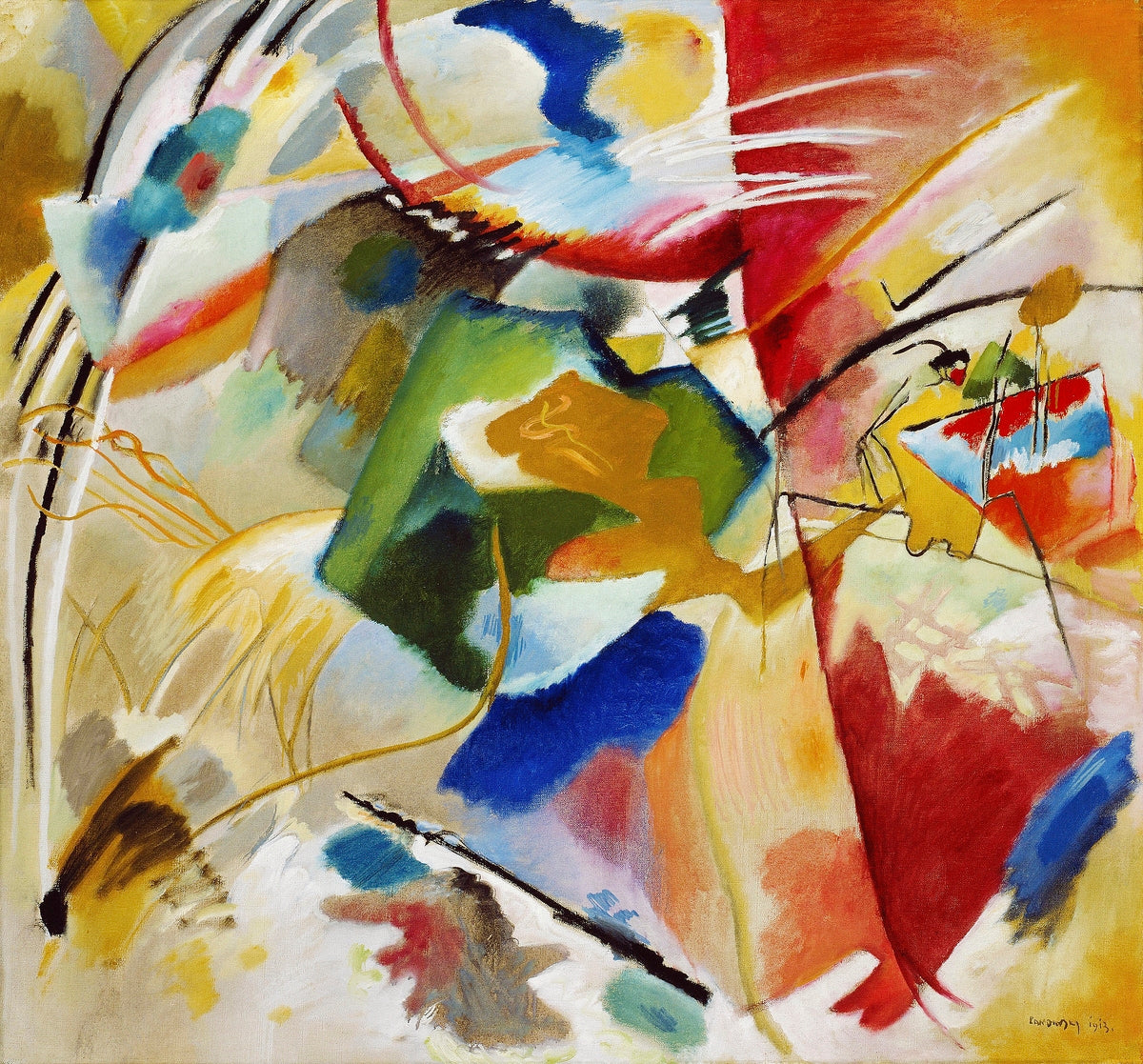Description
Painting with Green Center is an abstract artwork created by Russian artist Wassily Kandinsky in 1913. It is an expressionist abstract art piece that uses vibrant colors and geometric shapes to create a sense of movement and energy.
The most notable thing about this work is the large green circle in the center of the painting, which acts as a focal point for the surrounding elements. This circle stands out for its brightness and for its contrast with the other colors and shapes in the painting.
The overall composition of the work is also interesting, as it uses diagonal lines and irregular shapes to create a sense of tension and dynamism. Kandinsky was interested in the idea that shape and color could have a direct emotional impact on the viewer, and this work is a good example of his focus on abstraction and expression.
Furthermore, Kandinsky was one of the pioneers of abstract art, and his work influenced many other artists and art movements of the 20th century. Therefore, Painting with a Green Center is an important work both for its artistic quality and for its place in the history of modern art.
A common interpretation of Green Center Painting is that it depicts an abstract landscape, with the green circle as a sun or moon in the center. In fact, Kandinsky often used abstract shapes and colors to evoke nature and the emotions he felt when interacting with it.
Furthermore, Kandinsky was an artist interested in color theory and the psychology of art, and believed that colors could have a direct emotional effect on the viewer. In Green Center Painting, vibrant colors and strong contrasts are used to create a sense of energy and vitality, and to express the artist's emotions at the moment of creation.
In general, Painting with a Green Center is a complex and multifaceted work that can be interpreted in many different ways. It is a leading example of Kandinsky's abstract and expressionist approach, and remains a work of great interest and value to art lovers and historians.






